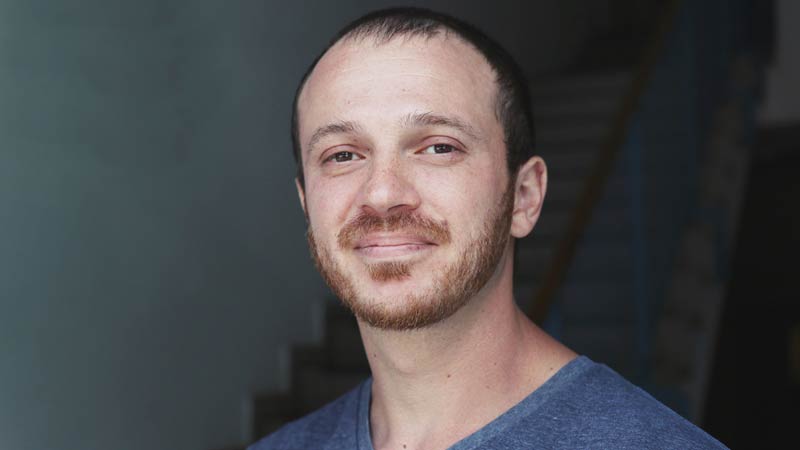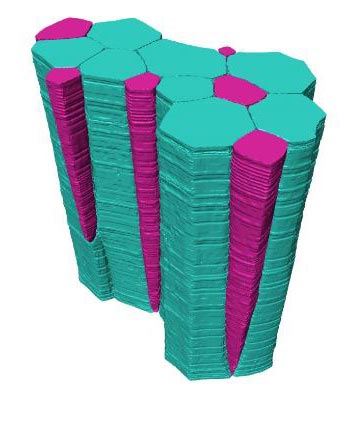Igor Zlotnikov Group
Thermodynamic and Nanomechanical aspects of Biomineralized Tissue Formation

© B CUBE
Living organisms form complex mineralized biocomposites that perform a variety of essential functions. These biomaterials are often multifunctional, being responsible for not only structural support and mechanical strength, but also provide optical, magnetic or sensing capabilities. The remarkable diversity in functionality is accomplished from a relatively narrow range of constituent inorganic materials. Hence, a significant effort has been directed to study the process of biomineralization – to understand how organisms assimilate elements from the environment and incorporate them into living tissues. This research is primarily concerned with chemical construction, synthesis and formation of highly ordered architectures and complex morphologies under strict biological control. Many studies have emphasized the complexity of biochemical mechanisms in charge of the delicate equilibrium and interaction chemistry between inorganic precursors and macromolecular components leading to nucleation, assembly and growth of different biominerals. In contrast, thermodynamic constraints, governing the microstructure formation, growth kinetics and the morphology of the mineralized tissue leading to a specific functionality are much less understood. My recent work showed that, in some cases, the biological organism which regulates mineral formation is not controlling its shape evolution beyond setting the necessary thermodynamic boundary conditions. Most importantly, I have demonstrated that in these cases, microstructure formation is analytically defined and can be quantitatively described both in time and in space.
Structural, biochemical and functional characterization of biomaterials is a challenging task that requires implementation of state-of-the-art techniques from a large spectrum of fields in life and physical sciences. Since primary function of biomineralized tissues is mechanical strength and structural support, the field of nanomechanical characterization of biomaterials has become a major area of research providing inspiration for the design of lite and robust synthetic materials. However, due to the structural complexity of naturally occurring composites and their intrinsic time, temperature and humidity dependent behavior, their mechanical characterization is still a major challenge. My recent work was successful in introducing and developing novel techniques with the unique ability to investigate environmentally dependent static and dynamic mechanical properties with high spatial resolution.
Future Projects and Goals
The research group aims to:
- address the fundamental question of how nature takes advantage of thermodynamic principles to generate complex morphologies and to study the interplay between physics of materials and cellular control in this process
- resolve and understand the mechanisms of time, temperature and humidity dependent elastic and viscoelastic response of naturally occurring functional composite systems
The study is focused on calcium carbonate and silica based biomineralized nanostructured tissues in marine organisms, found in shells and sponges, respectively
Methodological and Technical Expertise
- Synchrotron and electron microscopy based nano- and microtomography
- Synchrotron based SAXS/WAXS and single crystal diffraction analysis
- Static and dynamic nanomechanical characterization (nanoindentation, modulus mapping, nanoDMA)
